Best Captain America stories of all time
Enjoy the best Captain America stories for tales of the ultimate super soldier
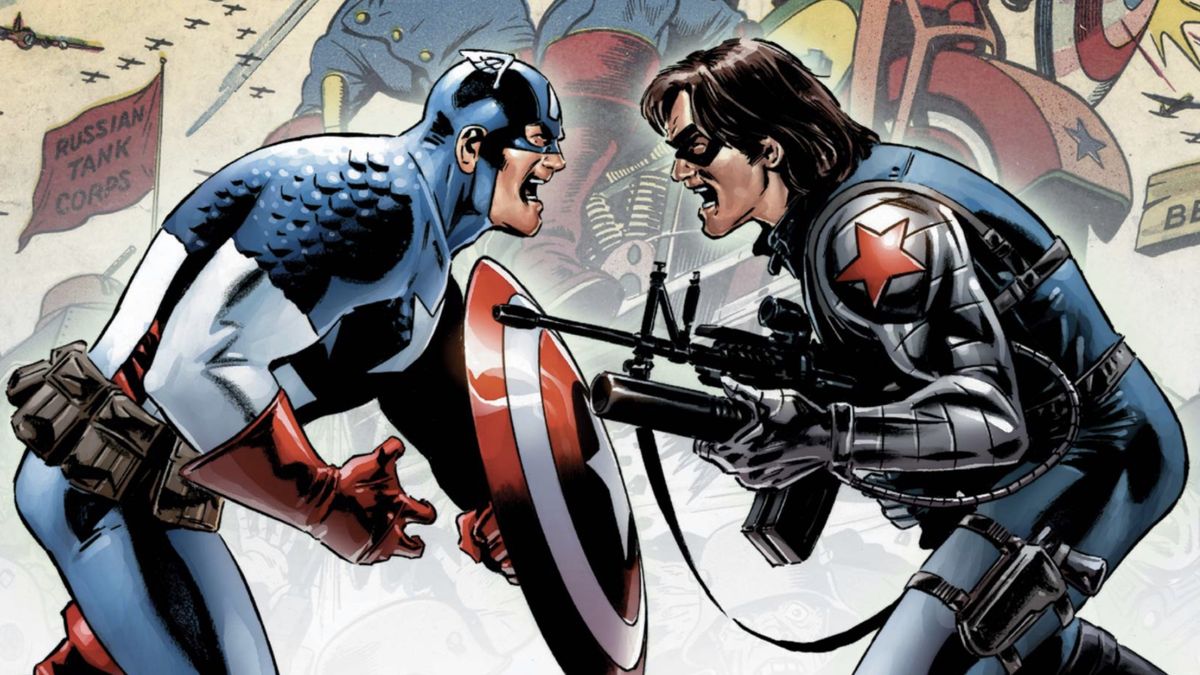
The best Captain America comics of all time paint a picture of a man out of time, a hero from a world gone by making his way in a changing era. Channeling comic book superhero action into broad real world politics, Cap has often formed the moral backbone of the Marvel Universe.
And like the real world, the best Captain America comics show that trying to hold a strong moral compass often leads you into shades of gray - and for Cap, that means espionage, action, and tough decisions that lead to even tougher outcomes.
With Captain America: New World Order headed to theaters in 2024, now is the perfect time to dig into the best Captain America comics ever, and get to know one of the most complex and intriguing corners of the Marvel Universe.
10. The Hero That Was
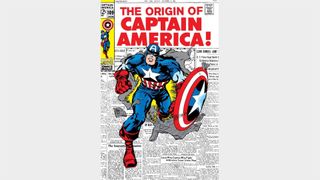
(Captain America #109)
The true heroism of Cap comes, as everyone who's seen his movies knows, from who Steve Rogers was before he got buff, and there are few better comic book examples of this than Stan Lee and Jack Kirby's retelling of the character's origin in Captain America #109.
Lee's melodramatic, sincere dialogue perfectly matches Kirby's bombastic, dynamic art in this pretty perfect take on a familiar story.
Buy: Amazon
Comic deals, prizes and latest news
Get the best comic news, insights, opinions, analysis and more!
9. No Longer Alone! / Tomorrow You Live, Tonight I Die / The Strange Death of Captain America
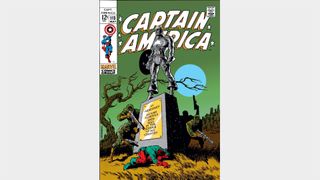
(Captain America #110-#113)
In many ways, Jim Steranko was an unexpected choice to follow Kirby on the Captain America title - his work seemed more modern, less macho, than the King's.
But the three issues he created with Stan Lee are pop art classics that seem as dazzling and contemporary now as they did when they first appeared more than three decades ago, bringing a new sense of cool to the Captain and upending the character's status quo by not only killing off Steve Rogers but turning the character into a super spy as much as a superhero.
Buy: Amazon
8. The Secret Empire
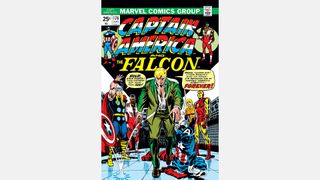
(Captain America and the Falcon #169-176)
A lot of what would become familiar Cap tropes were introduced during writer Steve Englehart's classic '70s 'Secret Empire' story, including the idea of multiple Caps, the notion that Steve Rogers could (and would) abandon his costumed identity in order to find himself, and just the possibility of using Captain America as a way of exploring where America is at as a country and a culture in general.
Amazingly innovative, consistently entertaining and exciting, and sadly underrated, Englehart's Captain America may be up there with Ed Brubaker's for the best portrayal of the character ever.
Buy: Amazon
7. Castaway in Dimension Z
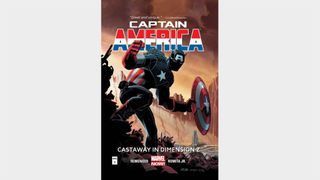
(Captain America (2012) #1-10)
Captain America stories that alter Steve Rogers' status quo have been par for the course for decades, but 'Castaway in Dimension Z' took him somewhere he'd never been before – literally.
After thwarting an attempt to conquer the world by his old enemy Arnim Zola, Steve was transported to an artificial world of Zola's making where he raised one of Zola's clones as a son for years before finally being rescued.
The emotional impact of Steve as a kind of fantasy hero – a man out of world as well as time – packed an emotional resonance that took him in a brand new direction, and showed readers exactly what kind of father he would be given the chance.
The gut-wrenching twist on Steve's rescue didn't hurt, either.
Buy: Amazon
6. Madbomb
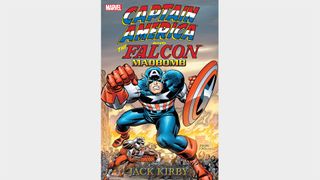
(Captain America (1968) #193-200)
When Jack Kirby returned to Captain America in the '70s, he set out to make over his character by turning everything up to 11: the speed of the stories, the action, and the scale.
Suddenly Cap and the Falcon got their missions directly from the President and the future of the country was almost always at stake, even if their missions took them outside America (and they did). Kirby was playing with the idea of what a superhero comic could be, and if it seemed goofy at the time, and many thought that it did, it seems revolutionary now - throwing out ideas that the medium is still trying to catch up with.
Although his run lost some energy by its end, the first arc, titled 'The Madbomb', in which an experimental device threatens to drive the entire country insane unless Cap and Falcon can stop it, is non-stop energy.
Buy: Amazon
5. Captain America No More
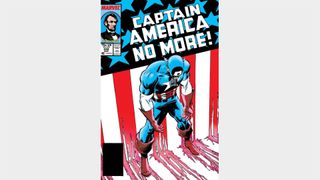
(Captain America (1968-1996) #332)
The highlight of Mark Gruenwald's lengthy run on the title, 'Captain America No More' may have repeated certain ideas from earlier runs (like in Englehart's run, Cap quit and adopted a new identity, and also had a showdown in the White House).
But there's more than enough here to make it a worthwhile return trip: The Serpent Society! Nomad! Diamondback! D-Man! And, maybe most interestingly of all, the introduction of U.S. Agent, who finds that stepping into the shoes of a living legend is much harder than he could've anticipated.
Buy: Amazon
4. Man Out of Time
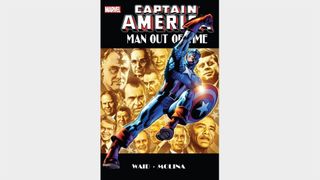
(Captain America: Man Out of Time #1-5 & Avengers (1963) #4)
One of two Mark Waid stories on this countdown, 'Man Out of Time' which updates and expands a core piece of the character that is often overlooked: the culture shock Steve Rogers must have felt after waking up in the modern world after disappearing during World War II.
Waid's writing is sensitive and intelligent and fills in a lot of blanks about Rogers' re-emergence that manage to make the character more human, and more easily identified with as a result. That Jorge Molina's art is pretty great doesn't hurt, either.
Buy: Amazon
3. Operation Rebirth
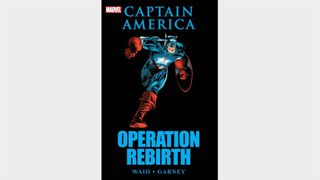
(Captain America #444-448 & #450-454)
When Mark Waid took over the reins of the Star-Spangled Avenger following Gruenwald's departure, Cap was in a sorry state, having suffered through attempts to update him and bring him in line with the gritted teeth and armored shoulder pads of the Image Comics-obsessed '90s.
Waid and Ron Garney quickly took the character back to basics in 'Operation: Rebirth', in the process rediscovering what made him so unique amongst the Marvel heroes and reminding readers that Steve Rogers was so much more than the costume and shield.
Buy: Amazon
2. The Death of Captain America
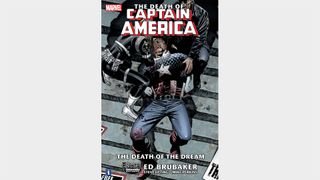
(Captain America (2004) #25-42)
What started with a plot development that no one saw coming very swiftly turned into Ed Brubaker's highpoint of a near-decade run, defining the importance of Steve Rogers by his absence and the influence he'd had, and inspiration he'd been, on those around him.
And in amongst all of this, there was also a story about an increasingly divided America and the ways in which those divisions could be exploited by old enemies that felt closer to contemporary reality than anything the title had seen in decades.
Never mind Civil War; 'The Death of Captain America' was the Marvel story that really had something to say about the world we live in nowadays.
Buy: Amazon
1. The Winter Soldier
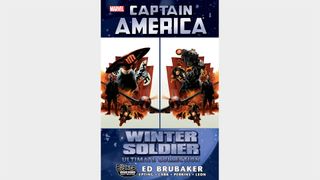
(Captain America #1-9 & #11-14)
Ed Brubaker's Winter Soldier saga really consisted of an extended narrative drawn out over several story arcs, but it remains the definitive modern Captain America tale. Winter Soldier reintroduced Steve Rogers’s long-lost partner Bucky as a brainwashed Soviet super-assassin, calling into question almost everything Steve took for granted about his own life and reintroducing Bucky Barnes to the Marvel Universe.
Winter Soldier defined the modern Captain America – both in terms of his character, the stories told with him. The shocking twist, the deep political intrigue, and rich supporting cast all made Captain America a must-read title for the first time in years. There's also the little matter of Bucky's ascent to being a fan-favorite character – something that would have seemed sacrilegious and impossible without the level of storytelling involved.
The Winter Soldier epic paved the way for Captain America: Civil War, and for Cap's big-screen renaissance, with blockbuster movies based on both Captain America: Winter Soldier and Civil War - and of course the upcoming The Falcon and the Winter Soldier, which features Bucky as a co-lead.
Buy: Amazon
